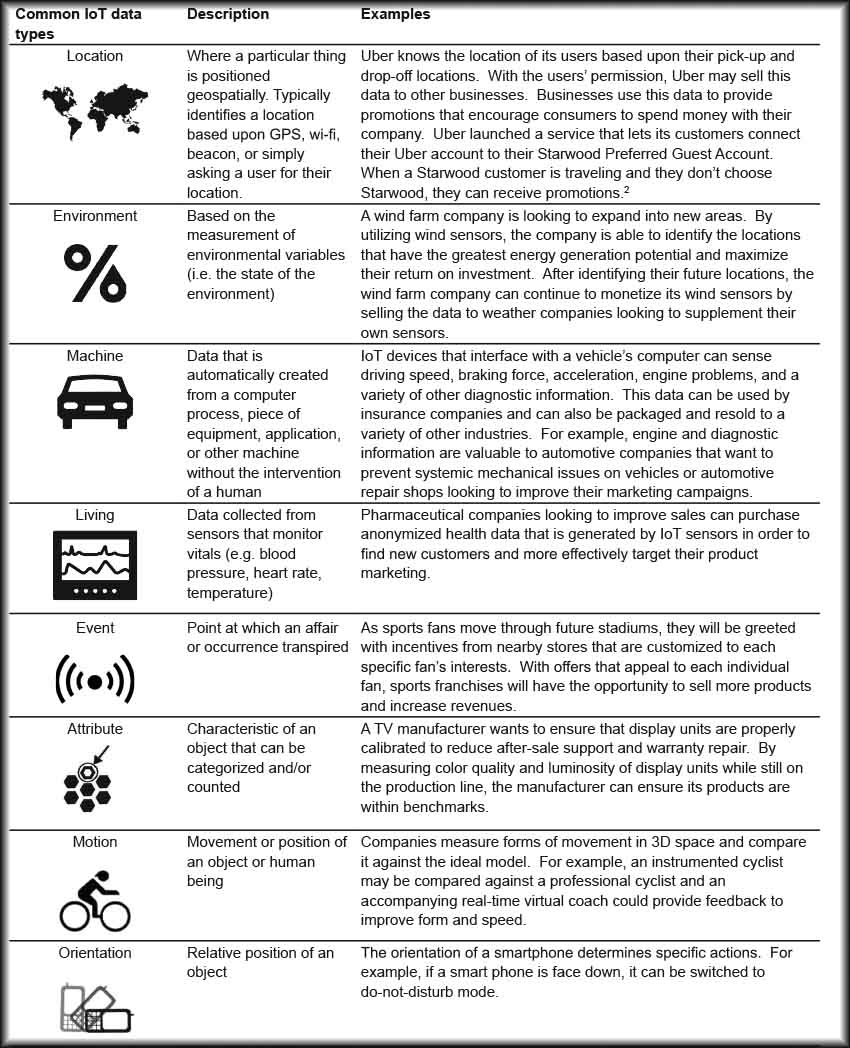
Data monetization leverages data generated through business operations, available exogenous data or content, as well as data associated with individual actors such as that collected via electronic devices and sensors participating in the internet of things. For example, the ubiquity of the internet of things is generating location data and other data from sensors and mobile devices at an ever-increasing rate. When this data is collated against traditional databases, the value and utility of both sources of data increases, leading to tremendous potential to mine data for social good, research and discovery, and achievement of business objectives.
Capturing and monetizing data will require intelligent, connected systems and processes that help ensure that data and privacy are managed with the same rigor as traditional assets.Companies have figured out that data can be used in day-to-day operations to reduce costs and grow revenue
Organizations are using AI and machine learning for surveillance to help monitor for terrorist activity. These technologies have been implemented with few regulatory provisions, and the line between surveillance and individual privacy is one that may be easily crossed.
Every company operating today is a data company. Most have access to an array of data on their supply chains, operations, strategic partners, customers, and competitors. Yet most companies are leaving money on the table, with only one in 12 monetizing data to its fullest extent. Data on its own has value, but insights derived from data substantially increase that value. These insights can be used to direct activities as varied as customer segmentation, demand and churn prediction, pricing optimization, retention marketing, and cost management - and they can also command even greater margins when sold externally.
Organizations that embrace the art of the possible in data monetization stand to create new capital from data sources and ultimately transform their business models. In doing so, however, they must maintain a sharp focus on data privacy.
Businesses have adopted technologies such as cloud-based data management, artificial intelligence, machine learning and predictive analytics to more efficiently run their operations. Now, many are applying these technologies to data monetization, creating specific algorithms to manage, store and analyze huge internal and external data sets.
Most leverage open-source software such as Apache Hadoop, Spark and Kafka to implement real-time data-management and analysis capabilities. These open-source tools, available at little or no cost, enable companies to gather and analyze data without significant investments in software.
The main question is on how the organisations are making real money from the data they capture,directly/indirectly or through implementing the backdoor software in the hardware/software. With this software they get the real-time informations happening at the site. Recently, few organisations had been heavily penalized.

See What’s Next in Tech With the Fast Forward Newsletter
Tweets From @varindiamag
Nothing to see here - yet
When they Tweet, their Tweets will show up here.





























